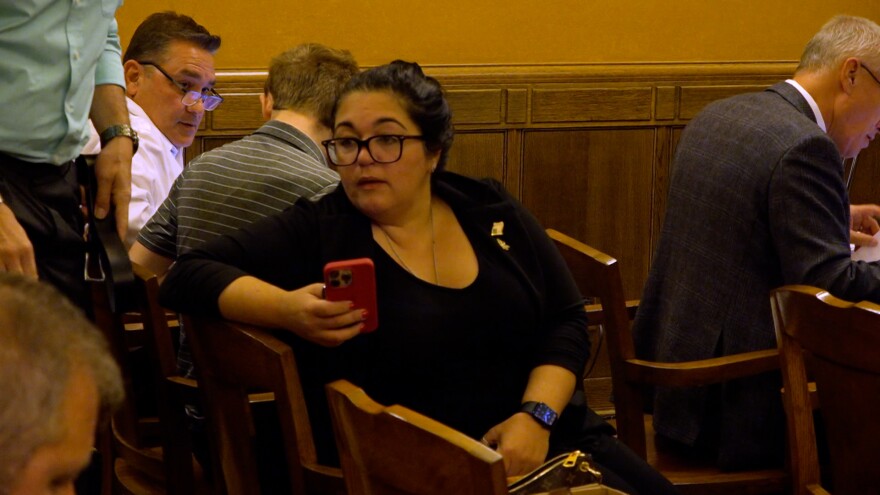Assistant Ohio Secretary of State Kimberly Burns said podcaster Terpsehore Maras is not eligible to be on the Nov. 2022 ballot as an independent candidate for secretary of state.
Maras, who denies former President Donald Trump lost the 2020 election in her podcasts, wanted to run for Ohio's top elections post and her name was to be on the ballot alongside Frank LaRose, the Republican incumbent running for re-election, and Chelsea Clark, the Democratic candidate.
The announcement comes just days after a hearing where 65 of Maras' petition signatures were challenged in a court hearing.
Justin Bis, Ohio Republican Party executive director, filed the challenge which went before Terrence O'Donnell, former Republican Ohio Supreme Court justice, last week. On Friday, O'Donnell determined 18 of the petition signatures were not valid. O'Donnell recommended Maras be removed from the ballot because she was short of the 5,000 valid petition signatures needed to be on the ballot as an independent.
But it was up to Burns to decide whether to decertify Maras. On Tuesday afternoon, Burns sent a letter to Maras saying she would not be eligible to appear on the November 2022 ballot as an independent candidate for secretary of state.
The secretary of state’s office informed Maras that she’s seven valid signatures short. Outside the courtroom last week, Maras said she won’t accept being removed from the ballot.
“I’m ready to file tomorrow for a preliminary injunction to enjoin any printing of ballots in any elections," Maras said.
It’s unclear what legal challenge, if any, Maras can file at this point.
This isn't the first time Maras has had problems getting on the ballot. She wanted to run against LaRose in the Republican primary in May. But she was also disqualified from doing that because she didn't have enough valid signatures to qualify. She appealed that decision to the Ohio Supreme Court and on March 18, that court ruled against her.
Election deniers are running for top statewide offices to oversee elections in several states. In the May primary, LaRose faced former state representative John Adams, who also denied Biden won the 2020 election and has claimed in speeches that “everybody knows after the last election, last year, that we got robbed."
In the hours leading up to the May primary, Trump endorsed LaRose. He then went on to win that primary with about 65% of the vote.
Copyright 2022 The Statehouse News Bureau. To see more, visit The Statehouse News Bureau.



